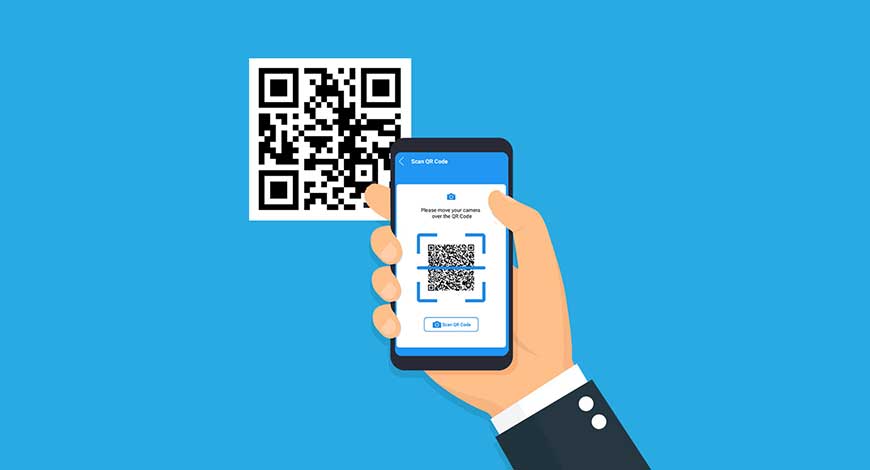Headlines of The Day
365 hospitals embrace NHA’s Scan & Share

The healthcare industry has witnessed a tremendous shift towards digitization in the recent past, with a growing number of healthcare providers adopting digital solutions to enhance the quality of care and streamline their operations. One such digital solution that is gaining popularity in the healthcare industry is the Scan and Share Service. In October 2022, the National Health Authority (NHA) introduced the Scan & Share service as part of its Ayushman Bharat Digital Mission (ABDM) to expedite OPD registrations. In just five months, the service has been embraced by 365 hospitals. The QR-code-based instant registration service has already aided over 5 lakh patients by significantly reducing the wait times in the Out Patient Department (OPD) registration areas of participating hospitals. In addition to government hospitals, several private hospitals are also facilitating ABHA-based registrations for their patients. The service is currently available in 125 districts across 25 states and union territories in the country. Karnataka, with 2.5 lakh users, Uttar Pradesh with 1.1 lakh users and Delhi with 72 thousand users, are the top states in terms of adopting this service.
Assisting patients with faster OPD registrations across the country
One of the significant obstacles to achieving Universal Health Coverage is the difficulty in accessing quality healthcare. Patients seeking medical assistance at the Out Patient Department (OPD) of a large healthcare facility are often required to wait in long queues for their turn to see a doctor. This wait time can range from a couple of hours to an entire day, and in some cases, patients may even be asked to return the following day. Moreover, in crowded OPD halls, the risk of cross-infection increases, especially for communicable diseases. The prolonged manual data entry process of basic patient demographic information, such as name, age, gender, and address, is the primary reason for long queues at the OPD registration. During peak hours, the chaotic and noisy environment makes it difficult for the data entry operator to efficiently enter the details into the HMIS system, thus compromising the quality of data. Moreover, due to the shortage of staff, one data operator often has to cater to hundreds of patients, which increases the likelihood of errors in data entry.
To help patients avoid these hassles, the “Scan and Share” service was launched by the National Health Authority. The popularity of digital payments using UPI (Unified Payment Interface) has taught us that scanning a QR code can enable the secure transfer of financial information. A recent report by the National Payments Corporation of India (NPCI) indicates that paying for groceries, shopping in supermarkets, recharging phone bills, dining out and shopping online are among the top five transaction categories on UPI. The success of UPI transactions has inspired the Scan and Share feature of ABDM, which allows patients to quickly register in healthcare facilities by scanning a hospital-specific QR code. By scanning the QR code and sharing their ABHA profile, patients can provide their demographic information directly to hospitals, thus avoiding long queues for OPD registration.
The Scan and Share feature of ABDM is designed to simplify the registration process for patients seeking healthcare services. It is a user-friendly and straightforward process that begins with patients scanning the QR code using their mobile phone, which generates their ABHA number. Patients then share their profile details with the healthcare facility, which generates a token number or queue number for the patient. This token number is sent to the patient’s selected app and is also displayed on screens at the counters. The patient can directly collect their outpatient slip for doctor consultation as their details are already present at the registration counter. This saves time and effort for manual data entry and makes the whole process faster, more accurate and efficient.
One of the most unique features of the ABDM system is that people without a smartphone can also benefit from this service. They can visit any healthcare facility that supports ABDM and, if they already have an ABHA card, they can have it scanned at the OPD counter to register. Those who do not already have an ABHA card, they can generate one at the healthcare facility. ABHA can be produced with the assistance of ABDM volunteers stationed at ABDM-enabled hospitals, and there is no charge for this service. This will ensure that everyone has access to the benefits of the Scan and Share feature, regardless of their digital literacy or access to technology.
Indeed, the Scan and Share feature of ABDM not only benefits patients and healthcare facilities but also promotes the digital transformation of the healthcare sector. The patients can access their health records digitally through their ABHA profile, which can be shared with healthcare providers whenever required. This promotes continuity of care and reduces the risk of errors due to missing or inaccurate medical information. Additionally, the ABDM enables real-time tracking of the number of patients visiting a healthcare facility and their medical history, which can be useful in planning and improving healthcare services. Overall, the Scan and Share feature is a game-changer in the Indian healthcare system, facilitating efficient and patient-friendly services.
Way forward
India has made significant strides in creating digital infrastructure, and various applications have proven to be beneficial, especially in the post-Covid-19 era. For example, Aarogya Setu is used for live tracing of Covid-19-positive patients, while CoWIN helps in booking vaccination slots. ABHA, an essential component of ABDM, has the potential to revolutionize the country’s digital infrastructure. Currently, more than 31 crore ABHA has been generated, and 10 crore health records have been linked, indicating that the ABDM ecosystem is gradually expanding. However, as India continues on its digital journey, healthcare providers must be vigilant and ensure that patient data is protected at all times. Best practices must be followed to prevent accidental or intentional misuse of patient data. The Financial Express











